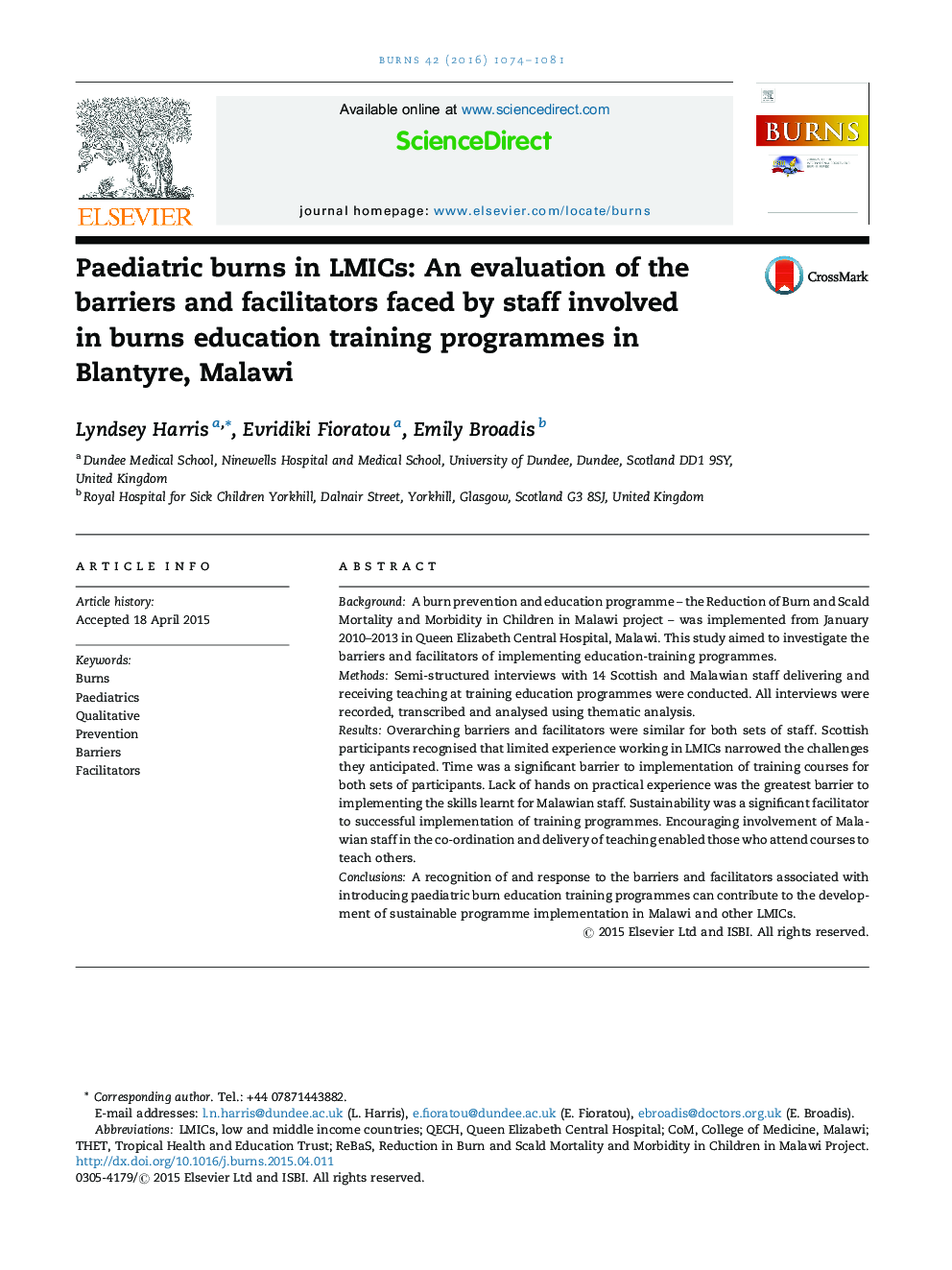| کد مقاله | کد نشریه | سال انتشار | مقاله انگلیسی | نسخه تمام متن |
|---|---|---|---|---|
| 3103994 | 1191638 | 2016 | 8 صفحه PDF | دانلود رایگان |
• Overarching themes of barriers and facilitators were similar for both sets of staff.
• Lack of practical training prevents Malawian staff utilising skills learned.
• Sustainability is an essential to successful implementation of training programmes.
• Identifying barriers to training delivery and success aids solution development.
• Lack of resources likely to present greatest obstacle to implementing improvements.
BackgroundA burn prevention and education programme – the Reduction of Burn and Scald Mortality and Morbidity in Children in Malawi project – was implemented from January 2010–2013 in Queen Elizabeth Central Hospital, Malawi. This study aimed to investigate the barriers and facilitators of implementing education-training programmes.MethodsSemi-structured interviews with 14 Scottish and Malawian staff delivering and receiving teaching at training education programmes were conducted. All interviews were recorded, transcribed and analysed using thematic analysis.ResultsOverarching barriers and facilitators were similar for both sets of staff. Scottish participants recognised that limited experience working in LMICs narrowed the challenges they anticipated. Time was a significant barrier to implementation of training courses for both sets of participants. Lack of hands on practical experience was the greatest barrier to implementing the skills learnt for Malawian staff. Sustainability was a significant facilitator to successful implementation of training programmes. Encouraging involvement of Malawian staff in the co-ordination and delivery of teaching enabled those who attend courses to teach others.ConclusionsA recognition of and response to the barriers and facilitators associated with introducing paediatric burn education training programmes can contribute to the development of sustainable programme implementation in Malawi and other LMICs.
Journal: Burns - Volume 42, Issue 5, August 2016, Pages 1074–1081
